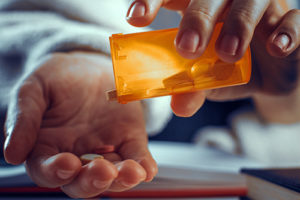
The opioid epidemic has sparked numerous discussions on how, why, and what consequences are deriving from substance abuse – whether it’s originally intended or not. Many people find that while they’re taking opioid medication for a health concern – chronic pain, for example – that it becomes more and more difficult to manage the medication as their body develops a dependency. In other circumstances, however, friends and family members are finding ways to obtain opioids as a “quick fix” without having to seek out a primary care physician for their concerns.
Wilson Compton, director of the National Institute on Drug Abuse (NIDA) explained for Kaiser Health News a few years ago that leftover medications are becoming an issue – and he wasn’t incorrect. The National Safety Council notes that every day, more than 100 people die from opioid drugs, and it’s often because people are taking 1) medication that isn’t prescribed to them, which affects their body differently, 2) medication in larger doses than is prescribed and 3) medication for longer than they really should be. Dr. Don Teater, a family physician, sums up the opioid epidemic by stating, “Painkillers don’t kill pain. They kill people.”
When medication is easy to access, such as from a friend or family member, the potential for drug abuse increases. This is because there is less regulation and maintenance involved – and what may seem like a “one-time” initiation from a loved one could turn into a full-blown addiction later on, even if that means friends or family members are beginning to ask other people for the drugs, too.
If you’ve been battling substance abuse, speak with a professional from Cumberland Heights today. Recovery is absolutely possible – it’s never too late to turn your life around, and there are many people here who are ready to support you in healing.
Cumberland Heights is a nonprofit alcohol and drug addiction treatment center located on the banks of the Cumberland River in Nashville, Tennessee. On a sprawling 177-acre campus, we are made up of two 12-Step immersion campuses, 12 outpatient recovery centers and 4 sober living homes. We believe that each person has a unique story to tell – and that’s why we always put the patient first. For more information, call 1-800-646-9998 today.










